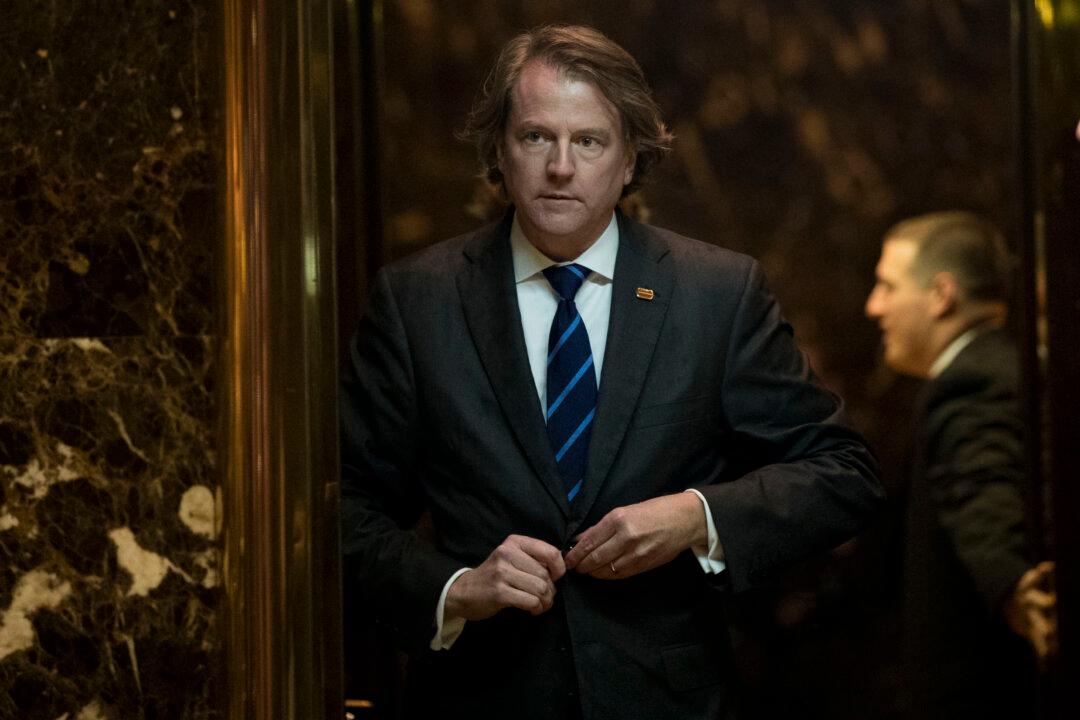President Donald Trump’s White House counsel, GOP establishment lawyer Donald F. McGahn II, resigned from his post Oct. 17, according to multiple media reports. McGahn was key in getting two controversial nominees onto the Supreme Court and ran Trump’s legal defense in the saga arising from the Russian electoral collusion theory.
McGahn’s resignation clears the way for his replacement, Pat A. Cipollone, a specialist in defamation defense and complex litigation. Cipollone’s talents could prove useful for Trump if Democrats—who promise extensive investigations of Trump—recapture the House of Representatives in the Nov. 6 elections.





